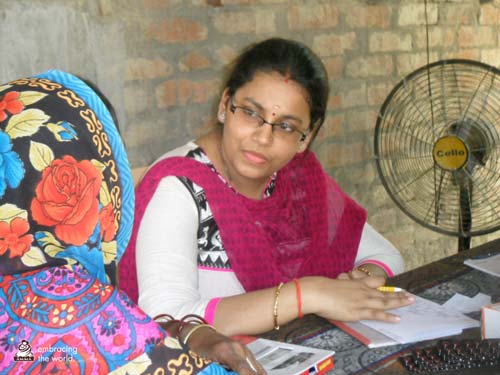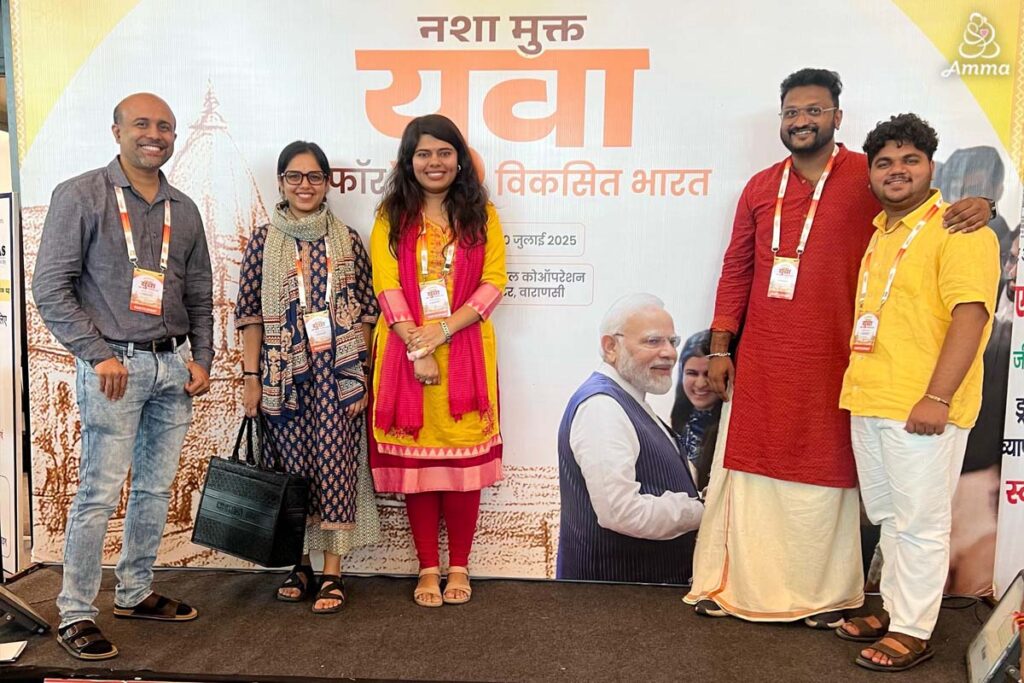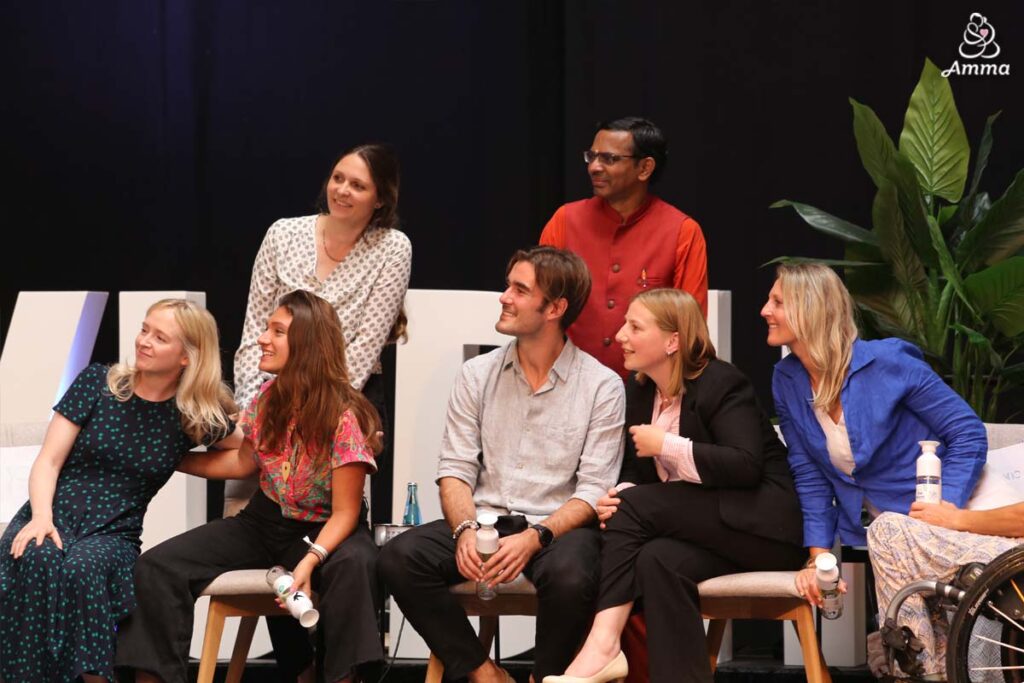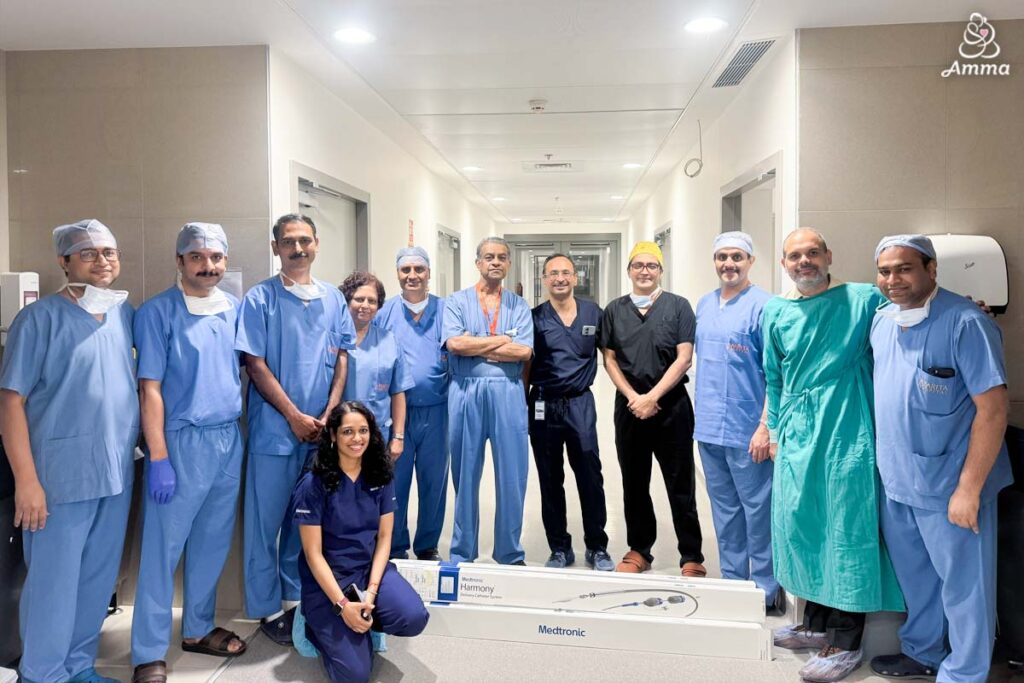In India’s remote villages, providing proper healthcare services continues to remain a challenge. India’s Human Development Index, a tool developed by the United Nations Development Program to assess development based on human wellbeing in addition to economic factors like national income, is low. One of the reasons for this is the absence of quality healthcare services in rural areas. Furthermore, India has the world’s largest number of people living in rural areas, so the need to provide better health care in India’s rural areas cannot be understated.
In order to address this issue, our own Amrita Hospital trained healthcare workers who provide early diagnostic and preventive care in villages. Health workers, however, are most effective if mentored by a doctor at least once a month.
Recently, two doctors visited Sarai Nuruddinpur, Uttar Pradesh, one of the villages in our self-reliant village initiative. Dr. Ashutosh, a graduate of our own Amrita Hospital and Dr. Seema, his wife saw nearly 150 patients in just one day.
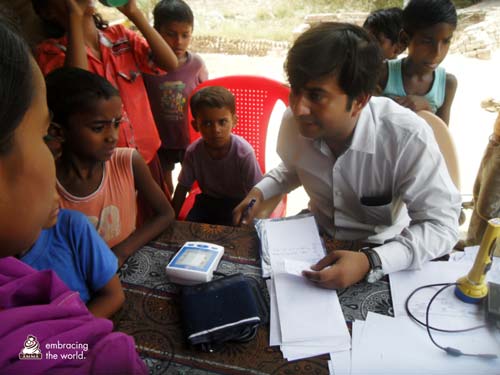
For Dr. Ashutosh, Amma has been a central figure in his life since childhood, as his parents have been involved in Amma’s organization for many years. Amma’s doctrine of helping those in need has motivated him throughout his life. For years, this couple has been rendering their expertise in the field of medicine by screening the poor free of cost near to where they live. For both Dr. Ashutosh and Dr. Seema, serving in the village was an honor and a dream come true.
Dr. Ashutosh explained about the day in the village: “Most of the patients we examined were suffering from stomach pain, knee pain, cough, eye and ear infections and fatigue. Medicines were distributed to them and a few cases were referred to the Government Medical College for advanced treatment. Alarmingly, we found out that the hemoglobin level of children was below 10. Iron tablets were distributed to them to increase the HB level. Nine pregnant women also came for the screening and Dr. Seema gave them a class about pre-pregnancy care.” Our health workers will continue with the follow-up work until the doctors can come back again.
Reflecting on the day, both Dr. Ashutosh and Dr. Seemed emphasized their commitment to serving others. “We wish to organize many more such clinics for the poor, thus spreading Amma’s doctrine of helping the needy.” Even though Sarai Nuruddinpur is not very close to where they live and they are not able to go every month, they plan to return every few months for follow up exams.


